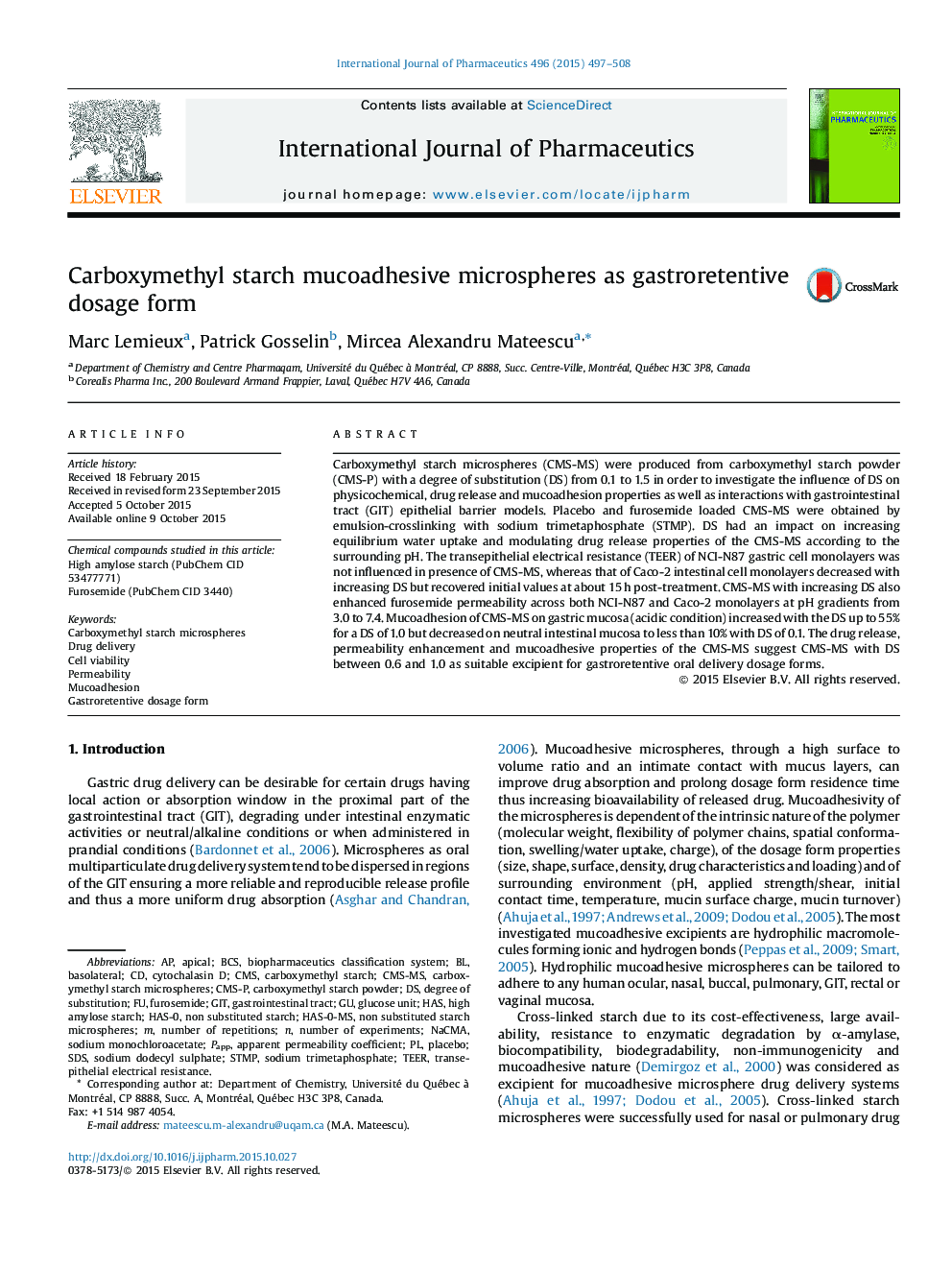| Article ID | Journal | Published Year | Pages | File Type |
|---|---|---|---|---|
| 5818192 | International Journal of Pharmaceutics | 2015 | 12 Pages |
Carboxymethyl starch microspheres (CMS-MS) were produced from carboxymethyl starch powder (CMS-P) with a degree of substitution (DS) from 0.1 to 1.5 in order to investigate the influence of DS on physicochemical, drug release and mucoadhesion properties as well as interactions with gastrointestinal tract (GIT) epithelial barrier models. Placebo and furosemide loaded CMS-MS were obtained by emulsion-crosslinking with sodium trimetaphosphate (STMP). DS had an impact on increasing equilibrium water uptake and modulating drug release properties of the CMS-MS according to the surrounding pH. The transepithelial electrical resistance (TEER) of NCI-N87 gastric cell monolayers was not influenced in presence of CMS-MS, whereas that of Caco-2 intestinal cell monolayers decreased with increasing DS but recovered initial values at about 15Â h post-treatment. CMS-MS with increasing DS also enhanced furosemide permeability across both NCI-N87 and Caco-2 monolayers at pH gradients from 3.0 to 7.4. Mucoadhesion of CMS-MS on gastric mucosa (acidic condition) increased with the DS up to 55% for a DS of 1.0 but decreased on neutral intestinal mucosa to less than 10% with DS of 0.1. The drug release, permeability enhancement and mucoadhesive properties of the CMS-MS suggest CMS-MS with DS between 0.6 and 1.0 as suitable excipient for gastroretentive oral delivery dosage forms.
Graphical abstractDownload high-res image (145KB)Download full-size image
